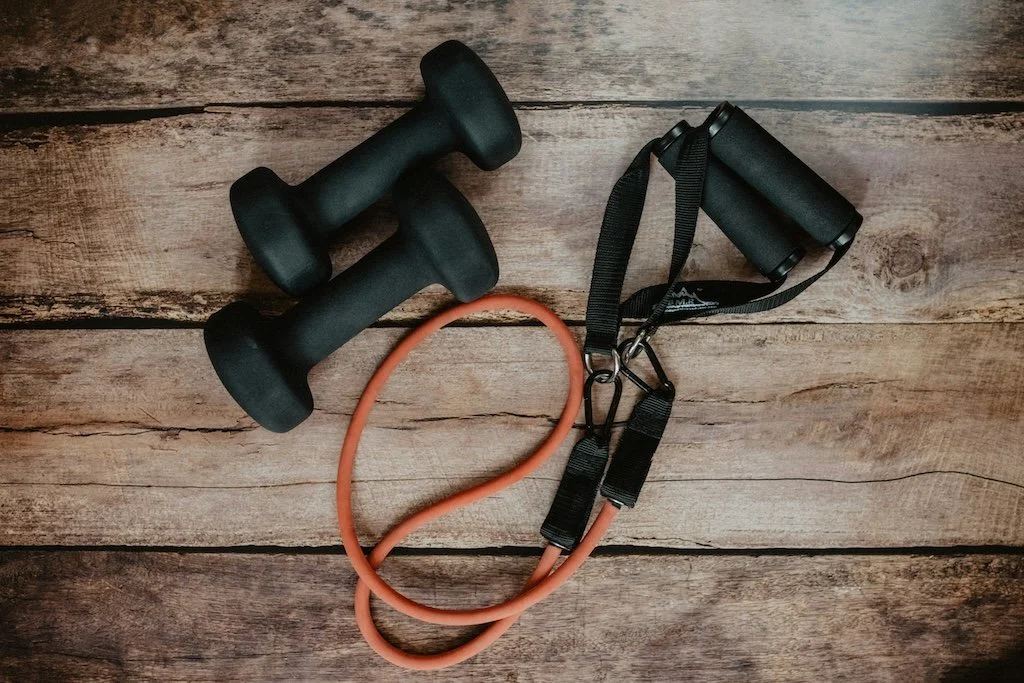Leg Strength: The Key to a Longer, Healthier Life
Photo by Matthew Sichkaruk on Unsplash
When it comes to longevity, many focus on nutrition, sleep, and mental well-being—but there’s one often-overlooked factor that plays a significant role in your overall health: leg strength. The latest research shows that building and maintaining strong legs doesn’t just improve mobility; it can extend your life and protect your brain as you age. Let’s dive into why leg strength is key to longevity and cognitive health—and how you can start strengthening your legs today.
The Vital Link Between Leg Strength and Longevity
Leg strength is a major determinant of how well you age. Studies have shown that individuals with higher muscular strength, particularly in their legs, have a significantly lower risk of death from all causes. Strong legs not only protect you from falls, but they also help maintain balance and independence, both of which are crucial as you age.
Photo by Mariah Krafft on Unsplash
A study published in PubMed found that people with higher muscular strength have lower rates of all-cause mortality. Why? Because strong muscles improve overall health—helping with metabolic function, balance, mobility, and reducing the risk of chronic conditions such as diabetes, arthritis, and heart disease.
In this episode of Diary Of a CEO, Steven Bartlett interviews Dr. Andy Galpin. The entire episode is excellent; however at the 01:36:56 marker on this video, we see key takeaways for having good leg health:
Main good mobility
Avoid falling – this involves training for balance, foot and hand speed
V02 Max
These these are some of the greatest predictors for a person’s survival rate. In fact, leg strength is so important that it actually outweighs your traditional clinical risk factors such as blood pressure, cardiovascular disease, coronary artery disease, smoking, diabetes (which are all bad!) but they are less of a risk than not having good mobility and being able to avoid falls and having a healthy V02 Max.
🏆 Quick Wins:
• Squats, lunges, step-ups and deadlifts are fantastic exercises that target the major muscle groups in your legs. Focus on compound exercises that recruit multiple muscles for better overall strength and functionality.
Photo by Luke Aguaita on Unsplash
• No gym required? Start with simple bodyweight exercises, using resistance bands and weights for added resistance.
Photo by Kelly Sikkema on Unsplash
Need some inspiration? We’ve got your back.
We love Jake.Beast videos as he always shows the best way to perform these exercises based on our biomechanics.
Checkout this 15 minute workout by @fitlifepassport for a complete leg workout:
https://www.instagram.com/reel/DDPWPvIR2VP/?igsh=MW0wd3QyMnJ1YmxqOA==
Here’s another option to lock in on speed, power, and coordination:
https://www.instagram.com/reel/DFLP2eNRVee/?igsh=c3VudjJyejJ4MnF6
How Leg Strength Enhances Cognitive Function
In simple terms: Stronger legs can mean a sharper mind.
While most people associate strength training with physical health, emerging research shows it also has a profound effect on brain health. A study on 324 female twins found that leg power was not only a predictor of sustained cognitive function but also helped preserve brain structure over time.
Here’s how it works:
Leg exercises improve circulation, which delivers vital oxygen and nutrients to your brain. This enhances cognitive function, supports neuronal health, and helps slow down the aging of the brain. Moreover, leg strength protects your brain from the damage that can occur with age, particularly in areas associated with memory and executive function.
Pro Tip:
Explosive leg movements—such as kettlebell swings or squat jumps—engage both your muscles and your brain. These exercises have been shown to help with cognitive function and memory retention by increasing blood flow and activating the brain’s neural pathways.
Photo by LOGAN WEAVER | @LGNWVR on Unsplash
Building Leg Strength: Actionable Tips and Exercises
You don’t need to be an elite athlete to build leg strength—consistency is what counts. Whether you’re just starting or looking to push your limits, here are some practical steps to build leg strength and improve cognitive health:
• For Beginners: Start with bodyweight exercises like squats, lunges, and step-ups. Perform these movements 2–3 times per week.
• For Intermediate and Advanced: Incorporate resistance bands, kettlebells, or weights to increase resistance. Focus on exercises that engage your lower body explosively, such as jump squats and leg presses.
• Balance and Flexibility: In addition to strength training, incorporate balance exercises to improve coordination and reduce the risk of falls. Practice activities like stretching or use resistance bands to enhance both strength and flexibility.
🔑 Consistency is the Key:
It’s not about doing these exercises every day, but rather making them a regular part of your weekly routine. Aim for 2–3 targeted lower-body training sessions each week, along with daily activities like walking, cycling, or climbing stairs.
Why Strong Legs are Essential for Independence
Leg strength impacts more than just mobility—it’s tied to your ability to live independently. With strong legs, you can safely get in and out of chairs, walk up stairs, and carry out day-to-day tasks without relying on others. This independence can greatly improve quality of life, allowing you to remain active and engaged in life for longer.
Actionable Steps to Boost Leg Strength and Cognitive Health
• Progressive Overload: Gradually increase the resistance in your leg exercises, whether through additional weight or more repetitions.
• Add Power Movements: Incorporate explosive exercises, such as jumping squats and leg presses, to build both muscle strength and cognitive function.
• Stay Active: Engage in daily activities that use your legs—whether it’s walking, cycling, or climbing stairs—to keep your legs strong and your mind sharp.
🧠 Final Thought:
By building leg strength, you’re not only improving your physical health but also preserving your brain function and ensuring that you can maintain your independence as you age. Start strengthening your legs today to protect your future health.
Dr Andy Galpin on Adding more muscle mass and the benefits 👇
Call to Action
• Commit to Action: Add at least 15 minutes of leg exercises to your week, starting today.
• Shop Our Tools: Explore our recommendations for resistance bands, kettlebells, and other equipment to enhance your leg strength.
Exercise Bands Resistance Bands for Working Out https://amzn.to/4gdKzyv
• Share with Friends: Know someone who could benefit from stronger legs and better brain health? Send them this article today!





